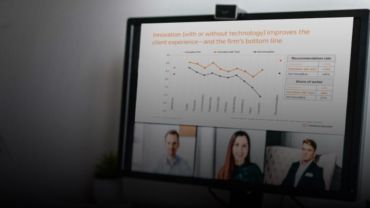Our new podcast looks at how lawyers have handled the pressures and challenges of the past year
It seems lawyers have always had a to juggle multiple projects at once. Practicing law, even before the COVID-19 pandemic, often felt like walking a tight rope with your available time stretched far too thin. Days would be filled with client meetings, running to the next hearing, and filing that important brief on time. We know that pandemic clearly exacerbated some of those aspects of being a lawyer.
As the pandemic struck, attorneys were expected to handle all those tasks and the challenges of a world in chaos. Some had COVID-19 themselves, many had to juggle family care, or grieve the loss of a loved one. There were the endless Zoom calls, late-night emails, seemingly constant availability, lack of person-to-person interaction, and, of course trying to maintain their own well-being in the midst of it all.
You can listen to the full podcast with the Genna Stainforth here.
So, where are we now? The challenges facing law firms and their clients today are steep — how do senior lawyers define purpose and their understanding of ESG (Environmental, Social and Corporate Governance)? How do lawyers want to work in a post-pandemic world? Does it include hybrid work? How are law firms supporting their lawyers’ well-being and the challenges facing clients? Moreover, are lawyers feeling equipped to support their clients, especially those in corporate law departments?
More than 2,452 attorneys globally responded — 89% of whom were partners — to those questions and more in the recent Thomson Reuters’ 2021 Stellar Performance survey.
Now, in our latest podcast, available on the Thomson Reuters Institute Market Insights channel, Gina Jurva, attorney and manager of market insights and thought leadership content for corporate and government at the Thomson Reuters Institute, spoke with Gemma Stainforth, a senior client manager at Thomson Reuters Acritas.
The two discuss the findings from the new survey and ways in which lawyers can best prepare for the future. They also discussed one very important aspect in retaining talent — flexible working. To attract top talent, firms should be prepared to shake off the one-size-fits-all rigid approach and listen to the needs of their employees. Virtually all lawyers want to work in a hybrid-environment, but those balances of home versus office time differ from firm-to-firm.







